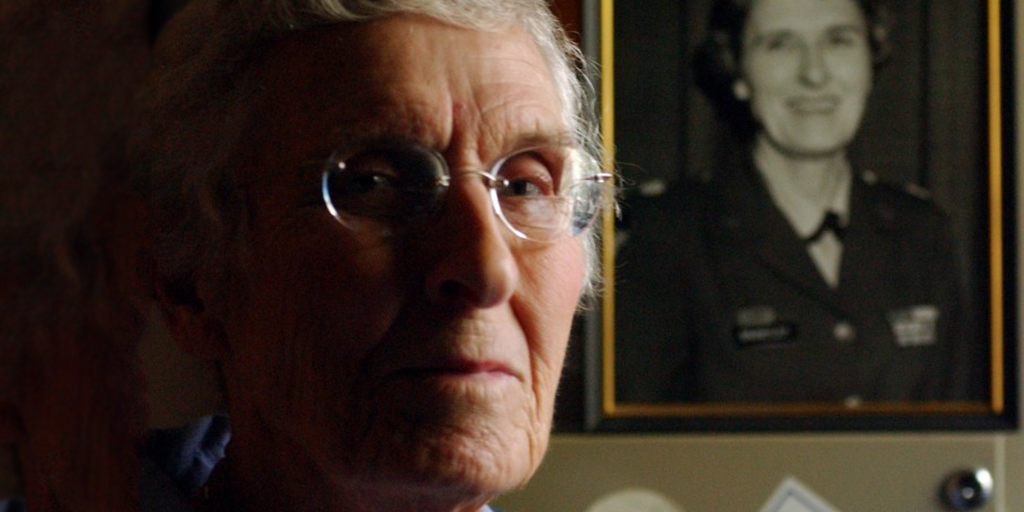Hattie Brantley: Former Army nurse & prisoner of war — and a Baylor alumna

Growing up working alongside her brothers on her family’s farm near Jefferson, Texas, young Hattie Brantley knew she really wanted to be a nurse, even as a child. As she told the Dallas Morning News before her passing in 2006, she “desperately wanted to avoid an expected, almost inevitable future of marriage to a barefoot boy in overalls from some neighboring farm, chores from dawn to twilight and a new baby every year or so.”
That desire to break the mold led Brantley to Baylor’s nursing school, where she earned her degree in just three years. After graduating in 1937, Brantley promptly joined the U.S. Army as a nurse so she could see the world. It was exciting and new and nothing like her family’s farm — but much changed on Dec. 7, 1941, after Japanese forces attacked Pearl Harbor.
Brantley was stationed in Corregidor, a small island in the Philippines, which the Japanese overtook on May 6, 1942. Brantley and 77 other nurses were taken as prisoners of war. For almost three years, Brantley was kept at a university-turned-prison-camp, where she and fellow nurses cared for more than 4,000 other prisoners — who “died like flies,” she said. Malaria and dengue fever were rampant, yet nearly impossible to cure due to limited resources. Bombs fell nearby as Brantley cared for hideously wounded men in makeshift wards beneath the jungle trees.
As prisoners, they could receive no mail from home. They lined up twice a day to be counted. If they met a Japanese native on the campgrounds, they had to bow. Their daily diet was limited to 700 calories and consisted of cornmeal gruel, watery coconut milk, fish heads and horse meat. By the end of the three years, each prisoner-nurse had lost about 30% of her body weight.
Brantley never saw for herself instances of brutality or torture, she told the Shreveport Times back in 1988, but she was very much aware of it happening. One of her most vivid recollections, for example, was a smuggling ring she and the other nurses had with local Filipino people. “We made a rope ladder at night, the Philippines [sic] would bring supplies to us.” But one day, Japanese soldiers came into the hospital and nurses’ quarters to search for a radio. “They found the rope ladder under my bed. I was scared to death. I just knew they would behead me. They just passed it by. I guess they did not realize what it was.”
Finally, one day a U.S. plane flew over the compound, dropping a confetti burst of leaflets. Brantley grabbed one and hid it from the guards in a can of foot powder. On the flyer were just four words: “Hold on. We’re coming.”
On Feb. 3, 1945 — two years, 10 months and 27 days after being captured as a prisoner of war — U.S. soldiers liberated the captives. “Are there any Americans here?” they shouted. “Yeah,” Brantley responded. “Where’ve you been?”
After finally returning back home, Brantley took just 90 days’ leave before returning to work — to nursing. She rose in rank to become Lt. Col. Hattie Brantley, and in 1988 accepted a newly authorized medal awarded to those who were prisoners in WWII, Korea and Vietnam. She was one of about 100 nurses christened the “Angels of Bataan” for the care they gave American soldiers during the months before the Philippines fell to the Japanese Imperial Army — and she was the very last one to leave the service.
Sic ’em, Lt. Col. Brantley!

